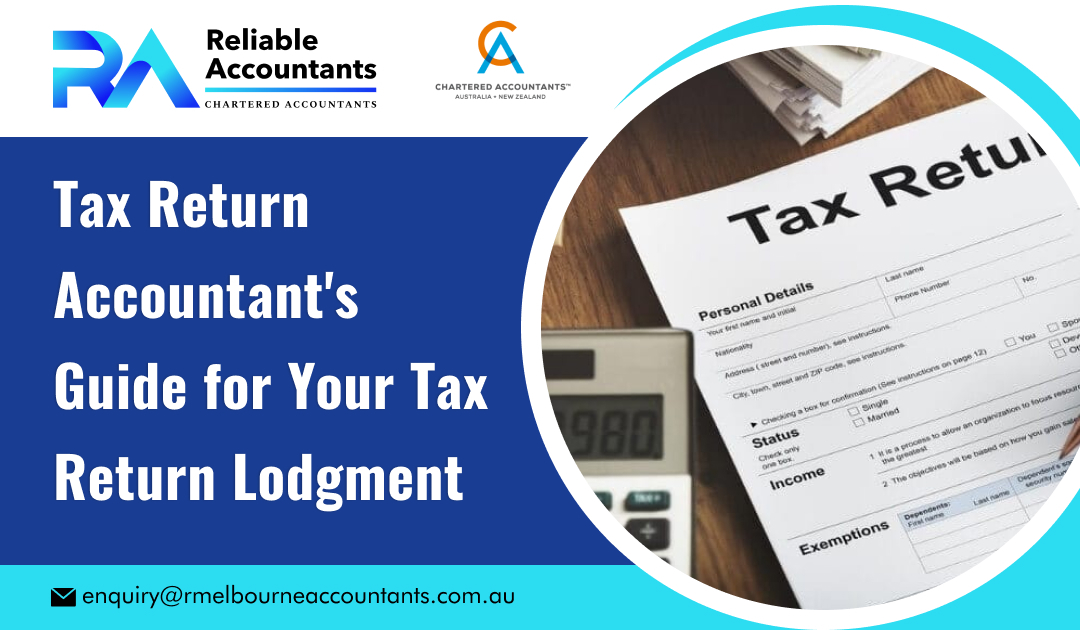As a sole trader, you have to look after various things to run your business successfully. If you don’t know about taxes, although it may feel like a daunting task, you can seek help from a professional tax return accountant. Tax accountants can help you with various tasks that will be mentioned in this blog.
Tax Checklist by Taxation Accountants for a Sale Trader
Just like any machine, your taxes also need maintenance. Maintaining all required documents can make the whole process easy and much smoother. You can avoid mess searching for that invoice you don’t know exactly where it is. A tax accountant can help you:
- Get an estimation of your income tax depending on the last financial year’s figures or estimation of your income.
- Keep detailed information regarding every business expense.
- Save all receipts belonging to your business.
- If you make PAYG payments, then accountants will make sure to track all of them and ensure that your quarterly payments are paid on time.
- Tax agent in Melbourne will make sure to file a business activity statement quarterly.
How to Calculate Income Tax?
To calculate income tax for an individual, you need to have your taxable income. To get your taxable income, you need to use the following formula:
Taxable income = income earnings – deductibles
Deductibles are expenses that relate to your job. Eligible deductions may vary between professions, and it is worth seeking help from a professional tax accountant in Melbourne when checking your deductions to ensure you don’t miss any that directly relate to your work.
After this, you need to calculate tax payables. And, for this, you need to use the following formula:
Tax payable = taxable income * tax rate
The tax rate may vary in Australia according to your earnings, and the government will also check whether you are a resident of Australia or not.
How to Estimate Your Income?
For sole traders, it is quite difficult to estimate income because no specific amount is earned in a given time period. The best small business accountant in Melbourne can help you with a few ways to estimate your income if you want the process to go smoothly.
- Use previous data: Many sole traders consider looking at the amount they earned during the same time period in past years to estimate future earnings.
- Overestimate payments: If you make money more than expected, you may get surprise tax bills. If you pay taxes more than required, you’ll get back the money. You can create a safety net when over-estimating.
- Make quarterly payments: When you use quarterly payments, you will have less data to worry about.
What is Personal Services Income (PSI)?
Your PSI is the cash you get paid when a customer purchases goods or services based on your expertise and labour. Your labour, abilities, or knowledge make up more than 50% of an invoice, at which point the revenue is PSI. This counts as your income for tax purposes.
What is a Business Activity Statement and Do You Need It?
Your business activity statement (BAS) is used to help you in reporting:
- Goods and services tax (GST)
- Pay-as-you-go (PAYG) withholding
- PAYG instalments
- Luxury car tax
- Fringe benefits tax (FBT) instalments
- After registering for ABN and GST, the ATO will send you a business activity statement when it is time to file.
If your business is registered for goods and services tax, you are required to lodge a BAS.
Tips for Increasing Your Tax Refund
One of the best methods of getting maximum tax refunds is through tax deductions. Knowing what you can claim as a tax deduction is quite tricky. That’s why many sole traders opt for bookkeeping and accounting services. To get started considering tax deductions, the following are common for sole traders:
- Business travel expenses like train, bus, and taxi fares.
- Home office expenses, including operating expenses and occupancy expenses.
- Maintenance charges for tools, machinery, or the premises.
- Other business expenses, including advertising, accounting, relevant courses, banking, subscriptions, and stationary.
- Vehicle expenses, such as fuel and oil, loan interest or lease payments, servicing and maintenance, registration, and insurance.
Conclusion
If you find difficulty doing your taxes on your own, you must contact a reliable tax accountant and get your taxes paid on time. Moreover, you can also seek advice and services from Reliable Melbourne Accountants.

